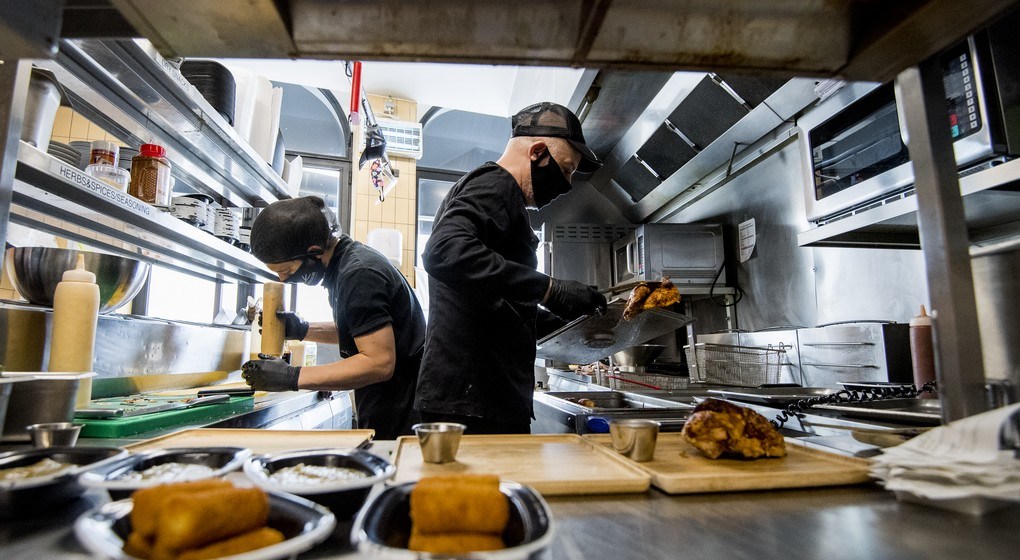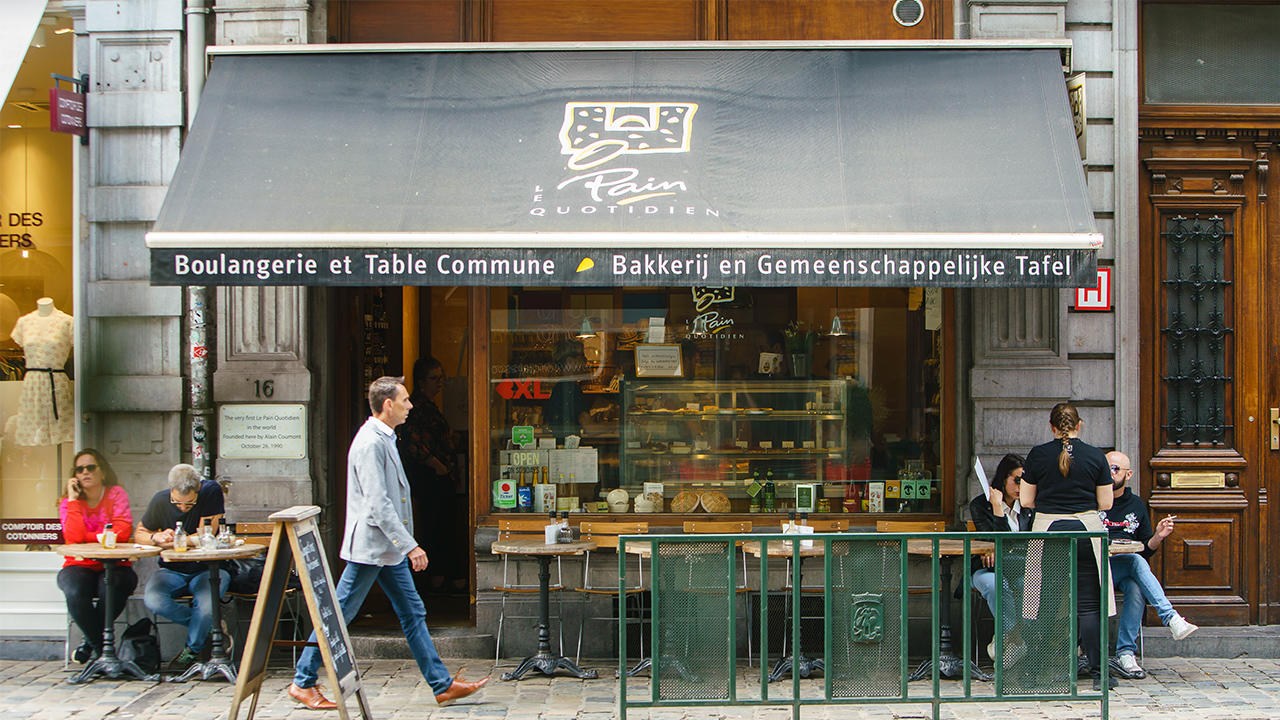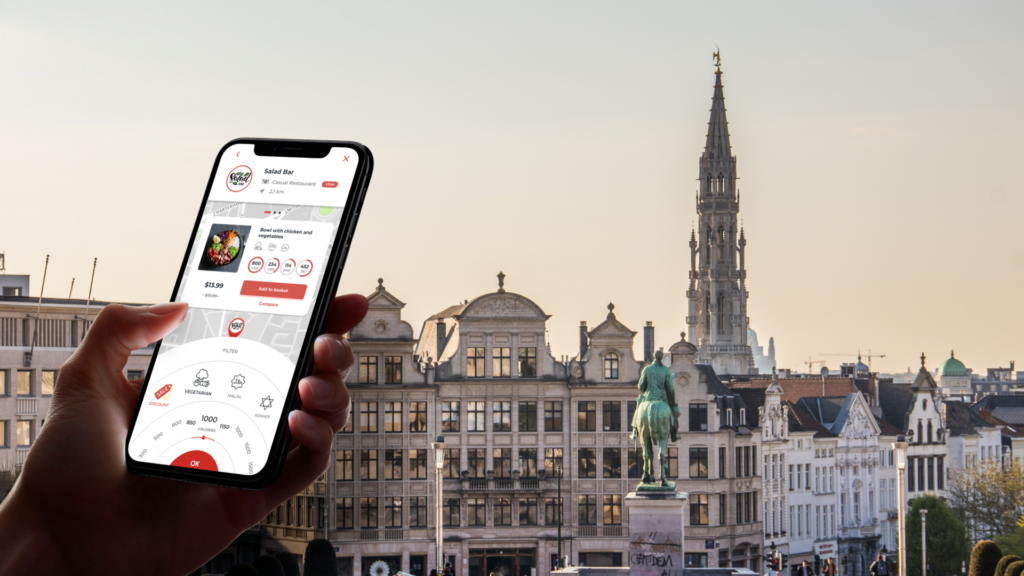A new Brussels start-up is taking calorie-counting to a local level with an app that gives users nutritional information for dishes on the menus of popular Brussels restaurants.
The app, called Ruddy, hopes to fill in the gaps left by popular calorie-counting apps like My Fitness Pal, which rely on American ingredient lists to give users rough estimates of the nutritional value of their food.
"With Ruddy I want to give people access to the accurate nutritional values of meals they are consuming in restaurants, which is why I have also developed a platform specially made for restaurants to help them easily calculate the nutritional values of their menus themselves,” Founder Cyrus Nejati told The Brussels Times.
“If you compare my app with other calorie-counting apps, that’s the difference – the other ones are all using the same American database.”
Related News
- How Belgium became the (food) start-up nation
- Ghent students win prize for insect-based pet food
- Number of Belgian start-ups increased in 2019
That leaves not only gaps when it comes to popular Belgian or European staples, but also inaccuracies in the nutritional value of simple ingredients like milk, butter and bread, which are produced differently in each region and thus have a different nutritional value.
“It would be so helpful if everyone had access to an accurate database so they knew what it was they were eating, then they could combine that knowledge with exercise or their lifestyle,” Nejati said.
Fit, not restrict
His own diet philosophy isn’t centred around weight loss or restriction. His motto when it comes to eating – and his motivation behind the Brussels start-up – is to “fit, not restrict.”
“When people think about eating healthy, they think "I’m not allowed to have this, I’m not allowed to have that. I want to really get away from that mindset. You should be able to eat whatever you like, but on a moderate level," explained Nejati.
"The goal right now with Ruddy is to give people access to the right information so that they can easily choose what to eat and have a well-balanced diet. It’s not about having a low calorie diet, it’s about having a balanced one."

Ruddy founder Cyrus Nejati.
For him, this means combining his favourite foods from Brussels restaurants with the right amount of exercise needed to maintain a healthy weight: "If I’m going to go out for pizza, I hit the gym harder. If I want to skip the gym, I eat healthier."
But calculating what he needed to eat in order to keep a healthy balance was difficult with US-centric calorie counters that didn’t come close to capturing the breadth of Brussels cuisine. And while other apps allowed users to sort by dietary restrictions or preferences like kosher, halal or gluten-free, none offered the option to sort by calorie intake.
Belgium as the food start-up nation
Nejati is hardly the first entrepreneur to choose food as his area of impact by filling a gap in the market.
David Mellett, CEO of Beefounders, an ‘accelerators studio’ that matches up investors and startups, said Belgium’s food sector is poised for big growth from small companies like Ruddy.
This is due in part to growing demand from people to ‘consume differently’ – meaning organic, vegan, local, seasonal or zero-waste– and the fact that large producers find it difficult to adapt their supply chains to those changes, leaving space for Belgians with an entrepreneurial streak to fill the gaps (and many have).

Credit: Belga
Brussels residents in particular tend to do a bit better when it comes to eating the recommended daily amount of fruits and vegetables (13.3% of men and 19.2% of women) than those living in Flanders (8.7% and 14.7%) and Wallonia (12.5% and 18.0%), according to data from Sciensano.
The Belgian diet is characterized by excessive consumption of red meat, processed meat and sugar sweetened beverages, their study found, but people living in Brussels had better nutritional habits.
Nejati wants to help them keep those.
Inspired by personal struggles with weight management
"I used to go to the gym a lot when I was younger, and I never had any trouble losing weight. When I saw people who were struggling, I assumed they were just lazy or they lacked commitment," Nejati said.
But after he enrolled in architecture school, Nejati found his daily routines completely upended by the educational workload: "I stopped going to the gym, I was studying constantly, my healthy eating habits fell away."
When family members pointed out his weight gain, he resumed gym visits but like so many others, didn’t see much movement on the scale. He tried eating healthier and counting his calories, but it got trickier when he started going out to eat again in his native Brussels.
"I was just guessing," he said, much like the American-based apps were.
Collaborating with Brussels restaurants for accurate data
By working with the Brussels restaurants he loved to visit, Nejati was able to come up with more accurate ingredient lists and therefore calorie counts– which also meant being able to fit a lot more of his favourite foods into a balanced diet.
"Let’s take a Belgian staple as an example: a kapsalon. That’s my favourite food. Everybody thinks it’s super unhealthy, right? But if you look at it, you have bread, meat, vegetables, and sauce. In theory, that’s fine. Leave out the fries, and you’re not doing so badly."

A chain restaurant in Rue Antoine DAnsaert in Brussels © Le Pain Quotidien
With a more accurate and localised calorie counter, Nejati hopes that other Brussels residents and visitors will be able to make the most of the myriad of unique food offerings in the Belgian capital while maintaining a healthy diet that works for their specific needs.
"It’s not about telling you what to do or what to eat– I don’t believe in restrictions when it comes to a healthy diet. You can find healthy food everywhere," explained Nejati. "It’s about making informed choices and knowing what you’re putting into your body."

